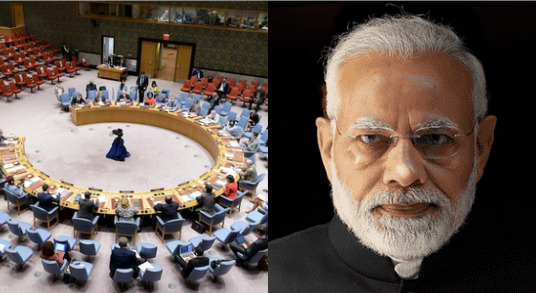Not many are aware of this story, but back in 2017, India had pulled a diplomatic coup at the United Nations (UN), primarily against the United Kingdom, and also against the four other permanent members of the United Nations Security Council (UNSC). Despite not having the support of any permanent member of the UNSC, India won the battle for getting its candidate – Justice Dalveer Bhandari re-elected as a judge at the International Court of Justice in Hague. The victory against the hegemons of the world in 2017 became a watershed moment for India, as it announced its mighty arrival on the international stage. The world was convinced that India had become a power that commands respect and influence around the globe like no other nation.
Now, a book has been published recounting the tale of how India scored this stupendous victory, and it is authored by Syed Akbaruddin, who was back then India’s Permanent Representative to the UN and a critical individual ensuring that the UK’s bid to get its own candidate re-elected is foiled. The book titled, “India vs UK : The Story of an Unprecedented Diplomatic Win” is slated for release on September 23.
When India scored big diplomatically…🇮🇳
The story & backstory of how India challenged the collective interests of all the 5 permanent members @UN Security Council & still won…🙏🏽 https://t.co/mZ1YDudtCN
— Syed Akbaruddin (@AkbaruddinIndia) August 24, 2021
Here’s what happened. In November 2017, India’s nominee to the International Court of Justice (ICJ), Dalveer Bhandari, was re-elected after the United Kingdom withdrew its candidate, Christopher Greenwood from the race. However, this withdrawal by the UK came after 11 rounds of voting for the coveted post – all of which ended in stalemates. While India bagged overwhelming support of member states in the United Nations General Assembly, Britain scored continuous victories at the UNSC due to the support of the four other permanent members – U.S., China, Russia and France.
A tough contest was never anticipated, as five candidates were needed to be elected for five posts. So, there was practically no contest, until Lebanon’s former ambassador to the UN put his hat in the ring. So, instead of there being five candidates for five posts, now there were six. As it turns out, the former Ambassador from Lebanon won a seat at the ICJ from a post reserved for candidates from Asia. This is what forced India’s candidate – Dalveer Bhandari to contest the election from a European seat, leading to New Delhi and London locking horns at New York’s UN headquarters.
A successful candidate needs a majority of support in both UN bodies. While Sir Christopher from Britain won the support of the UN Security Council, the Indian judge was backed by the bulk of the UN General Assembly. And the support for India at the UNGA was simply mind-blowing, to the extent that the UNSC members too began having second thoughts about supporting the British candidate. But the UK was not in a mood to give up either.
According to the Hindu, India’s diplomatic outreach led by Prime Minister Narendra Modi, External Affairs Minister Late Sushma Swaraj, Foreign Secretary S. Jaishankar and India’s Permanent Representative to the U.N. Syed Akbaruddin was gathering more support for India at the UNGA. India had two-thirds majority support for its candidate, making up 128 votes out of the 193 member states of the General Assembly. On its part, the UK too made representations at the highest levels of its government to win the support of the UNGA. However, it failed.
Thereafter, the UK decided to invoke a little-known provision in the UN Charter which allows for an arbitration process known as a “joint conference” to try to resolve the impasse which had come to exist between the choices of the UNGA and UNSC. However, this would be an unprecedented step and would be viewed by India very negatively. It was here that the UNSC’s permanent members decided that enough was enough, and made it clear to London that they would not support its bid for a joint conference. The UK had been defeated by India’s diplomatic might, subsequent to which it withdrew its candidate from the race.
India’s nominee – Justice Bhandari received 183 of the 193 votes in the GA and secured all the 15 votes in the UNSC after separate and simultaneous elections were held at the U.N. headquarters in New York. Matthew Rycroft, the UK’s highly rated ambassador to the UN, said the UK had withdrawn its candidate because it did not want to take up more of the UN’s valuable time, and he said he was “pleased” that a “close friend like India” had won.
India managed a magnificent feat and showed it in 2017 itself that it could win despite not having the support of the United Nations Security Council. A finer and more in-depth account of the entire campaign can be found in Syed Akbaruddin’s book.
